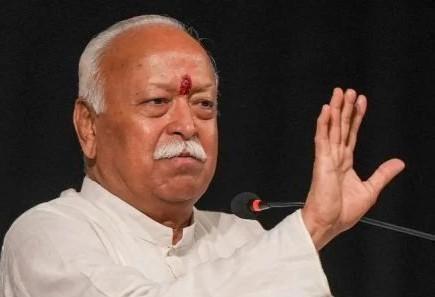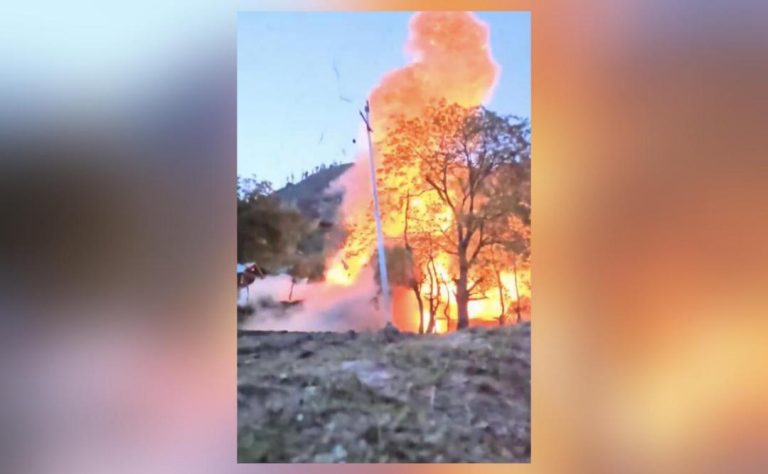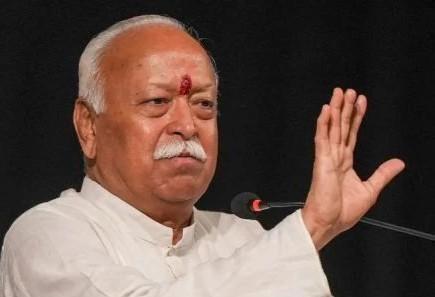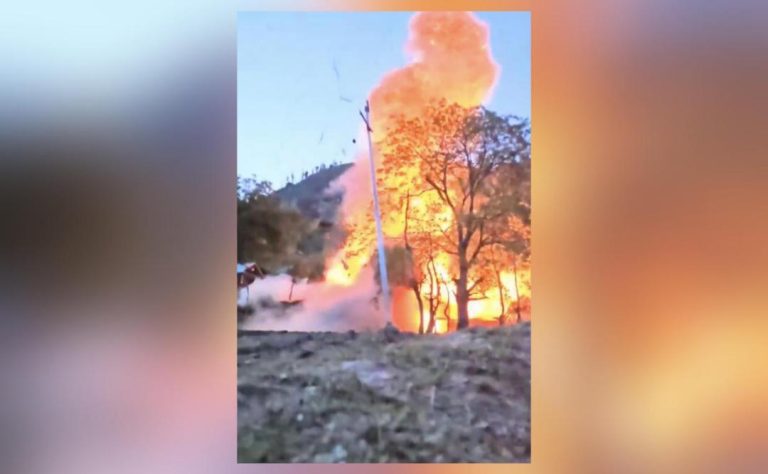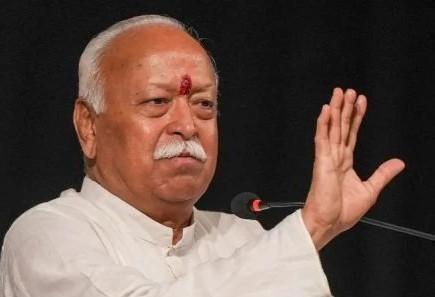
Title: If someone turns to evil then we’ll teach lesson: Bhagwat on J&K attack
The recent terror attack in Pahalgam, Jammu and Kashmir has left the nation in shock and grief. The attack, which resulted in the loss of innocent lives, has sparked a heated debate on the need for stricter security measures and the role of the government in protecting its citizens. In the midst of this chaos, RSS Chief Mohan Bhagwat has weighed in on the issue, saying that non-violence is India’s religion, but so is teaching a lesson to “oppressors and hooligans”.
Bhagwat’s statement has sparked controversy, with many interpreting it as a call for violence against those who perpetrate evil acts. However, a closer examination of his words reveals a more nuanced understanding of his position.
In an interview with a leading news channel, Bhagwat emphasized the importance of non-violence in Indian culture and society. He noted that India has a long tradition of non-violence, and that this is what sets it apart from other countries. He also acknowledged that non-violence is not always easy, and that it requires great courage and conviction to uphold.
However, Bhagwat also emphasized that there are times when non-violence is not enough, and that it is necessary to take a stronger stance against those who perpetrate evil acts. He used the analogy of a king’s duty to protect his people, saying that the king’s duty is to protect his subjects, and that he will do his duty.
Bhagwat’s statement is not without precedent. Throughout Indian history, there have been instances where non-violence has been used as a means of resistance against oppressive regimes. The Indian freedom struggle, led by Mahatma Gandhi, is a prime example of this. Gandhi’s philosophy of non-violent resistance was instrumental in achieving independence for India, and it has since been adopted by movements around the world.
However, Bhagwat’s emphasis on teaching a lesson to oppressors and hooligans has also raised questions about the morality of violence. Is it ever justified to use violence against those who perpetrate evil acts? Or is violence always morally reprehensible?
The answer to this question is complex and depends on a range of factors. While violence is often seen as a morally reprehensible act, there are times when it is seen as a necessary evil. For example, in cases of self-defense, where an individual is threatened with physical harm, violence may be seen as a necessary means of protecting oneself.
Similarly, in cases where a government is seen as being oppressive or unjust, violence may be seen as a means of resisting that oppression. However, this does not necessarily mean that violence is morally justifiable. Rather, it means that the circumstances are such that violence may be seen as a necessary evil.
In the context of the recent terror attack in Pahalgam, Bhagwat’s statement about teaching a lesson to oppressors and hooligans can be seen as a call for the government to take a stronger stance against those who perpetrate such acts. This is not necessarily a call for violence, but rather a call for the government to take effective action to prevent such attacks from happening in the future.
In conclusion, Bhagwat’s statement about teaching a lesson to oppressors and hooligans is complex and open to interpretation. While it may be seen as a call for violence, it can also be seen as a call for the government to take a stronger stance against those who perpetrate evil acts. Ultimately, the morality of violence is a complex issue that depends on a range of factors, including the circumstances and the intentions of those involved.
Sources:
